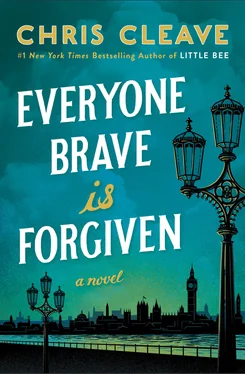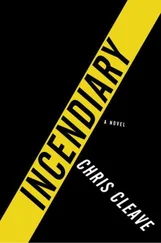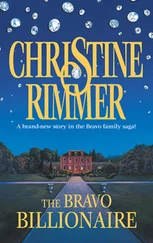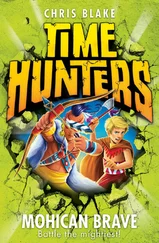She left the children to sleep, and went to see if the garret was still there. It was, though its windows were blown in. She didn’t mind. What was important was that when she fished in the dustbin for the last discarded bottle of morphine, there were still a few drops in it. She took them, then ran water into the bottle, rinsed it around, and drank it. When she began to feel more domestic, she swept up. The window glass sounded lovely as it surrendered itself to the dustpan. This was what the best composers would write from now on: orchestral scores for broken glass and brooms. She threw the morphine bottle in with the shards. She smiled because this was so ingenious. By tossing it in with all the other spent glass, without ceremony, one would move on from the whole episode.
Withdrawal from morphine would be perfectly manageable. She placed it in that category of hardships over which the fainthearted made a terrific fuss but which could actually be borne quite readily by a person who had been brought up to put on a sweater, rather than complain of the cold. The withdrawal would be more of a melancholy than a suffering — like taking the train home after a holiday in Devon.
The May morning blew in unimpeded. It was a tonic after the stale air in the Lyceum basement, even if there was smoke. Mary couldn’t find the makings of tea. She looked out over London, but the city didn’t seem likely to furnish her with tea, either. It stood in stunned silence, with white ash upon it in a shroud. Flames crackled here and there in the ruins. The morning cast a directionless shade through the smoke.
She hoped she might find a café open somewhere. She put on an overcoat of Alistair’s, rolling up the sleeves. In the Strand the ancient sundial of St. Clements made no shadow. Nothing was open. She wandered to the river. The waves were anxious and pale. Tea, she thought, half remembering why she had come. The word sounded in her head without finding meaning— tea, eee —unrequited, like the bleating of herds in thick fog.
Mary sat on the wall of the Embankment, her back to the disheartening river. In the silence of the morning no traffic moved in the streets. Women with ash faces and charcoal eyes swept neat piles of glass and mortar, neat heaps of splinters and flint, neat barrows for all that was lost. Now Mary began to feel uneasy. The music no longer seemed delightful. The hissing of the brooms carried a whisper: that life was cracked and gone. That any life left behind was not the good kind, which stubbornly built on rubble.
Aside from the brooms there was silence. London was a stopped gramophone with no hand to wind it. It smelled of cracked sewers and escaping town gas and charred wood, wet from fire hoses.
How hadn’t she noticed this? The ageless mechanism of the city’s renewal had faltered. Women only waited now, and swept. Rope cordons ringed unexploded ordnance. Chalk crosses marked the doors that the rescue crews had not yet opened. Mary thought of the mortuaries with their unclaimed dead lying in senseless paragraphs, line after line with an X against each body in the ledger. The point to which she had hurried at the start of the war was gone now, along with all fixed points. Now X marked only the unexploded, the unexamined, the unconsoled. One waited — with the shuffling rhythm of brooms — for some inexplicit resurrection.
It overwhelmed her. Every sense was scoured raw by the retreating grit of the morphine. The Thames was the issue of all the world’s wounded hearts, the billions. The pale brown flow was unending. Oh —she half remembered— I came out to find tea . The Thames was before her, infinite and inexplicable. How brown it was. Oh, she thought, I came to find tea . The Thames was… oh .
—
Hilda answered the door in her nightdress. The left side of her face was bandaged and taped, the eye covered. Blood showed through.
“What happened?” said Mary.
After a pause, Hilda said, “I think it’s my cheek.”
“Goodness, Hilda…”
“Oh Mary, your face! Do I look dreadful?”
Mary made herself smile. “It always looks worse than it is.”
“Well come in, won’t you?”
Hilda moved with care, her neck painfully straight. Mary followed her through to the little kitchen. She ran water into the kettle and put it on the stove. The pressure was feeble and the gas made a minuscule flame.
Mary said, “I hope you like your tea slow.”
Hilda slumped at the kitchen table. Mary hugged her. “What happened?”
“New driver. Stupid little thing. We dodged bombs all night and then she put us straight through a UXB cordon. The crash set the horrid thing off.”
Mary’s stomach turned. “Oh Hilda, I’m so sorry.”
“How bad do you suppose my face is? They wouldn’t let me look.”
“Does it hurt?”
“Awfully. Like it’s still being cut.”
“Do you have morphine?”
Hilda gave her a look. “Are you asking for me, or for you?”
Mary closed her eyes for a moment. “Both.”
“I’m trying not to use morphine, unless it gets desperate.’
“You’re shaking enough to bring down the building.”
“But they need it for the soldiers. We really have been so thoughtless.”
Mary took her hand. “But how else can one live through this?”
“As ordinary people do. We must learn to live, with no help, on our own.”
Mary said nothing. After a while Hilda said, “Sorry.”
Mary shook her head. “Do you have bandages, at least? You’re bleeding through.”
Hilda swallowed. “In the cupboard over the sink.”
Mary fetched bandages and antiseptic. She had Hilda sit back in her chair while she undid the pins.
“Does this hurt?”
“Only horribly.”
“I’ll be as gentle as I can.”
The bandage came off, dragging clotted blood and saffron-colored serum. Hilda yelped. “Sorry,” said Mary. “I’m so sorry.”
Hilda was shaking so hard that Mary couldn’t hold her. “Try to keep your hands off your face. Please, you mustn’t touch it.”
Mary clasped Hilda’s hands together and held them. Dabbing a clean bandage in the antiseptic, she cleaned the wounds. It was hard to do it properly — she was shaking almost as much as Hilda. When she was finished, she took a careful look at Hilda’s face.
“Now you must tell me where the morphine is.”
Hilda whimpered. “Is it as bad as that?”
“Tell me where it is, darling, and then I will bring the mirror.”
Hilda hesitated. The left side of her face was gore, the right was fear.
“Be brave,” said Mary.
Hilda closed her eyes and said, “Handbag.”
“Good girl.” Mary took two syrettes and they used one each.
Hilda took a deep, shuddering breath. “You were quite right, of course.”
“Cigarette?” said Mary, offering.
“Rather.”
Mary tuned the wireless. The Kentucky Minstrels played “Love’s Old Sweet Song.” The sharp midday light softened into afternoon.
“Fix your hair?” said Mary after a while.
No answer. Hilda’s cigarette, forgotten, drooped a sadness of ash.
Mary fetched Hilda’s hairbrushes and got to work. Hilda was sleepy and loose, and she kept coming toward the brush so that Mary had to nudge her head upright again. With the wireless they sat in warm silence while Mary worked, and once Hilda’s pompadour was restored Mary used hair spray to put it out-of-bounds for physics.
“How is it looking?” said Hilda.
“Fine. I’ll fetch the mirror, shall I?”
“Oh yes, do.”
When Mary brought the mirror, and set it on its stand on the little Formica-topped table, they held hands and looked together. There were three cuts, all beginning on the left cheekbone. The deepest ran back, toward the ear. The longest curved down, almost to the point of the jaw. The cruelest ran toward the eye, missing the eye itself but resuming on the other side of the socket to cut through the eyebrow and end in a nasty bifurcation on the forehead. The cuts had been stitched, but not very well. Mary imagined the scene at the hospital: the worst night of the bombing, the floors streaked with blood.
Читать дальше












